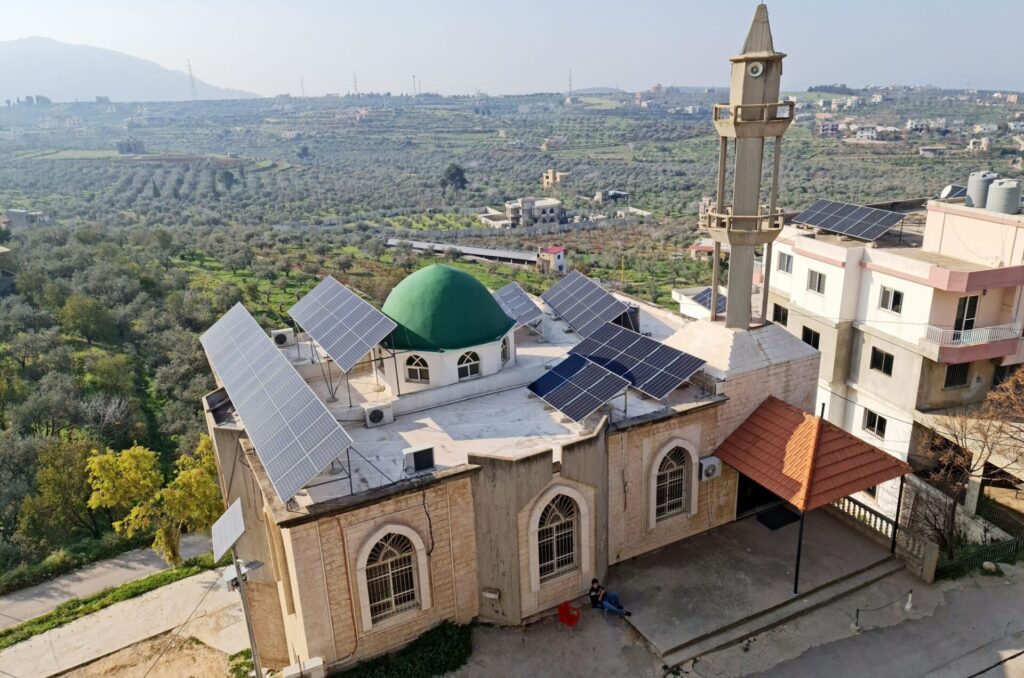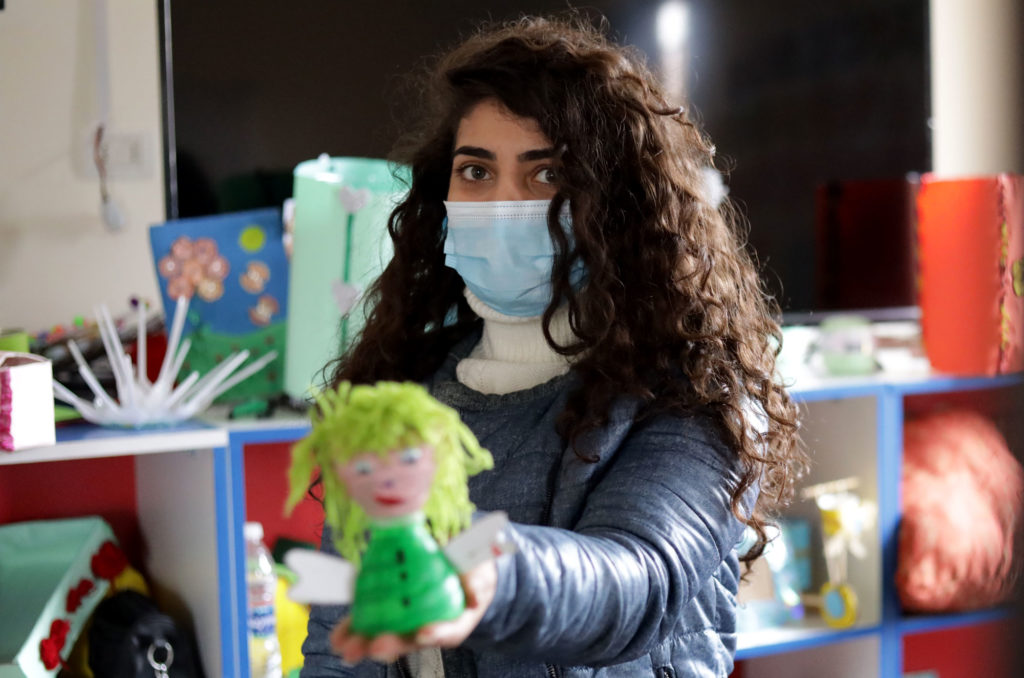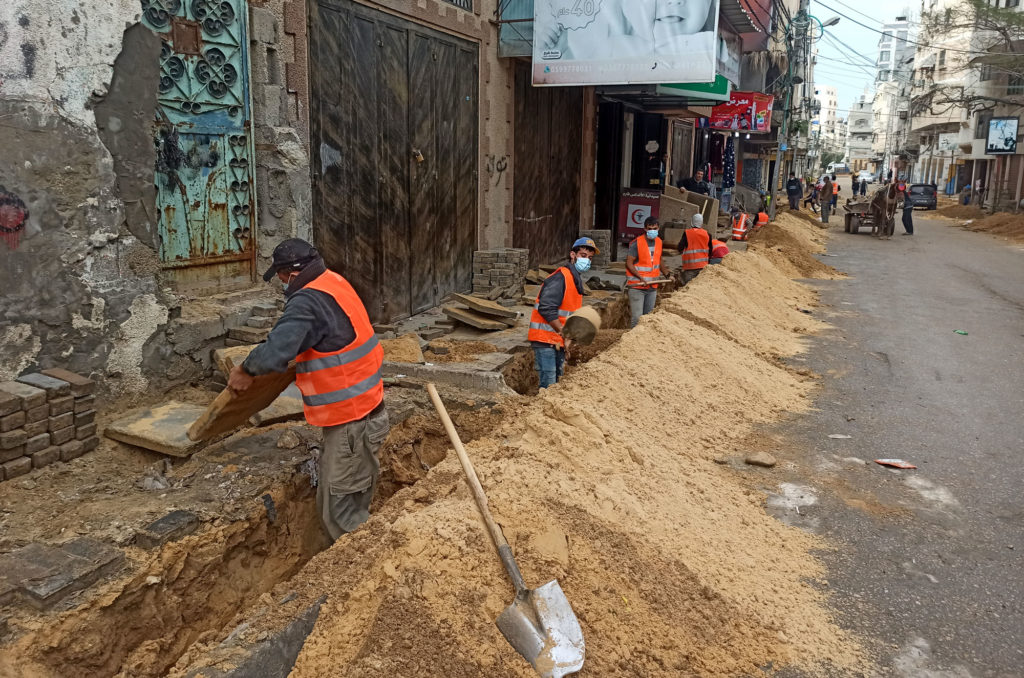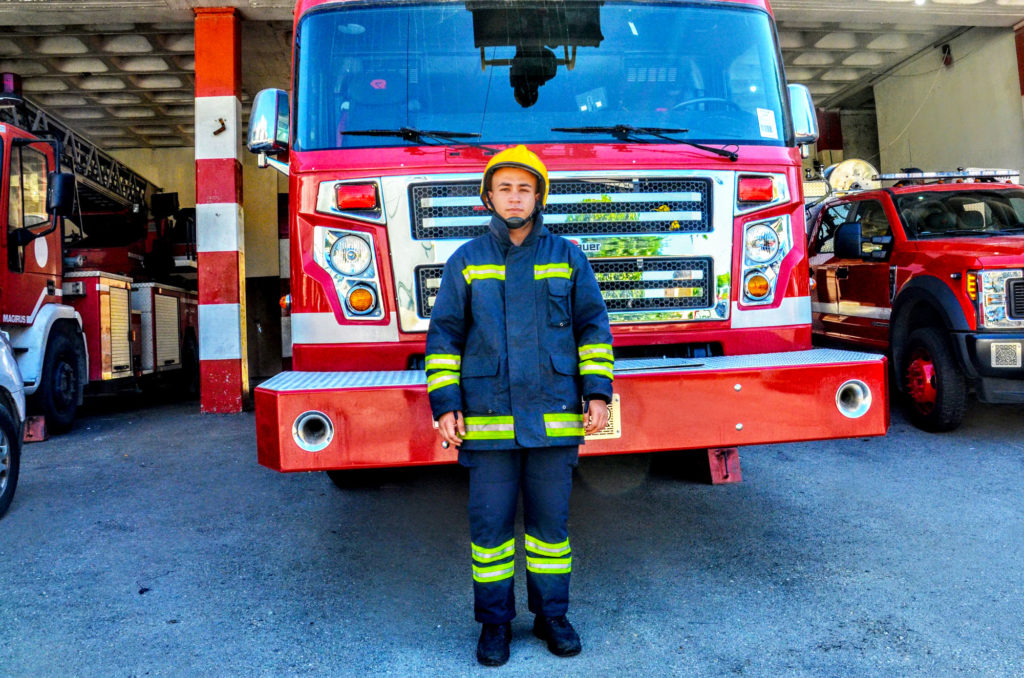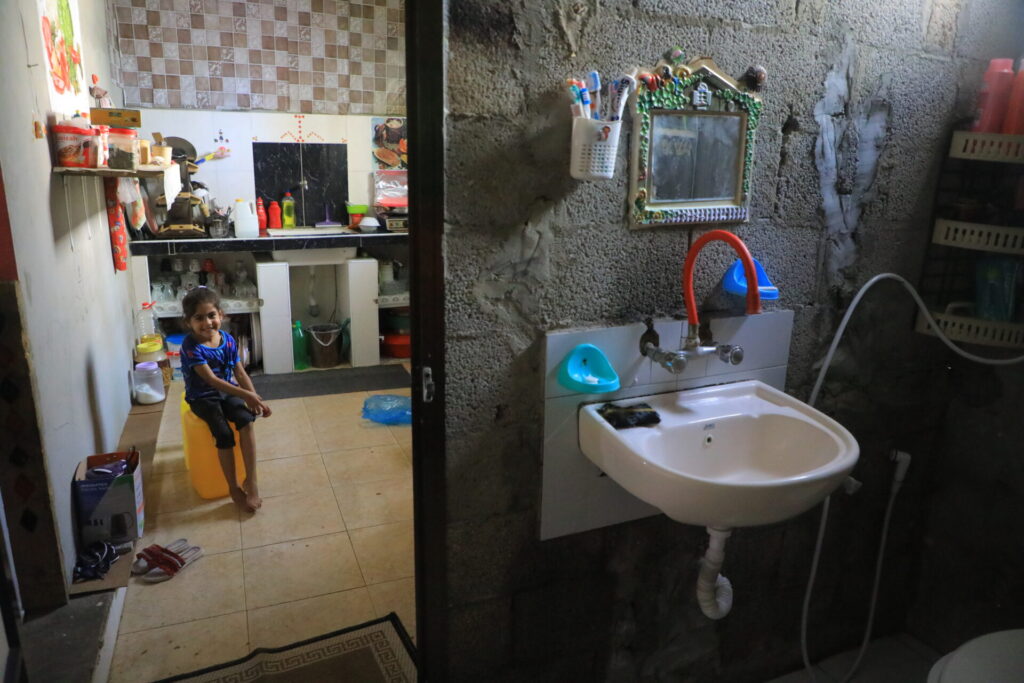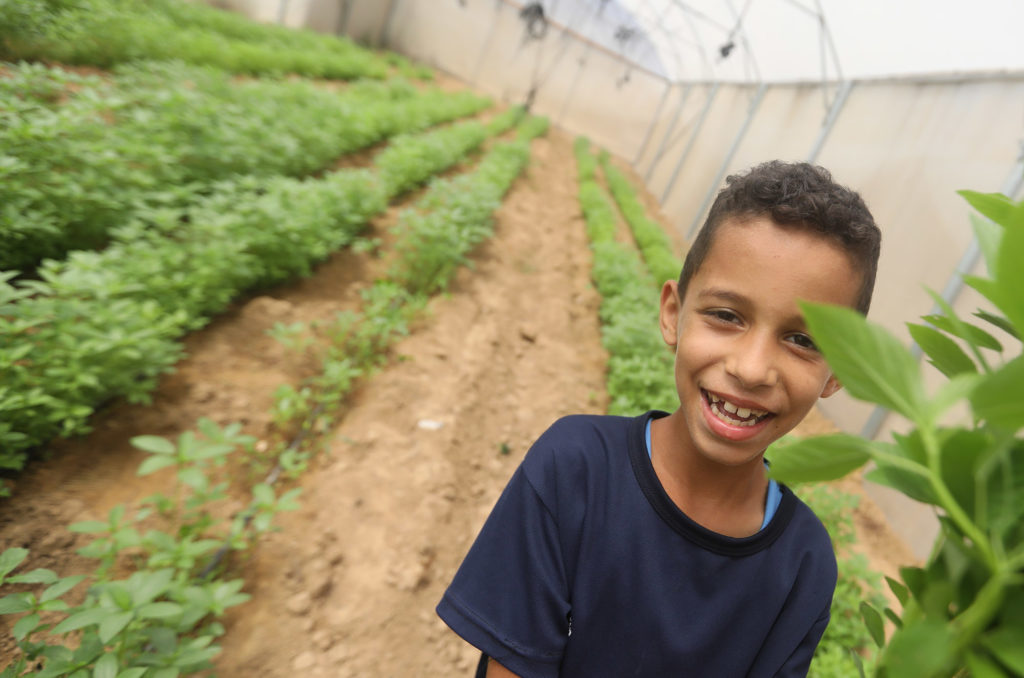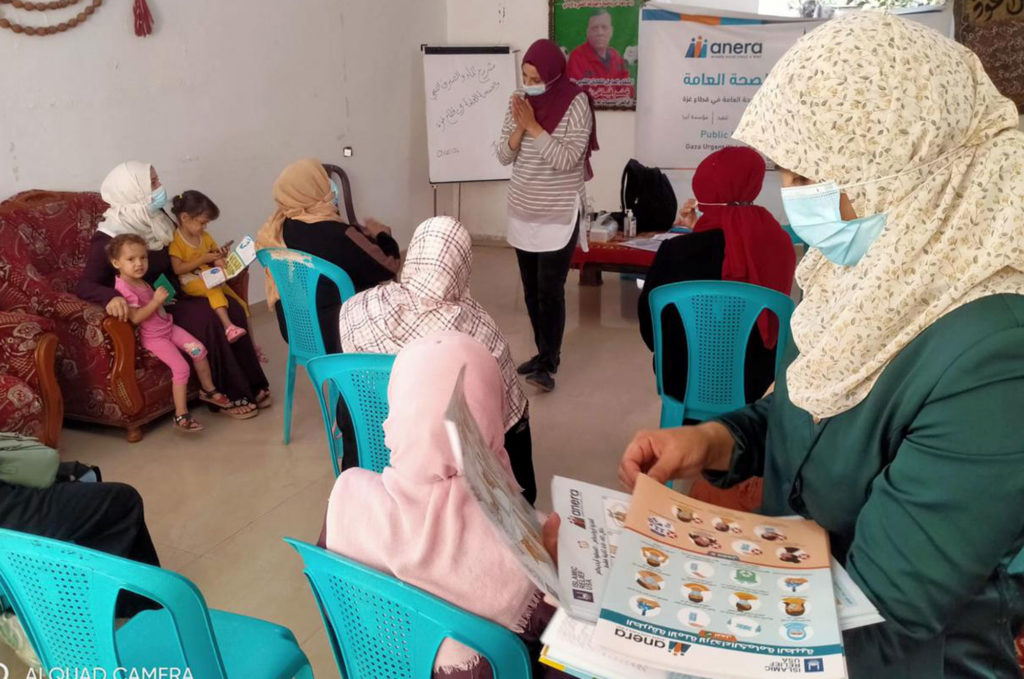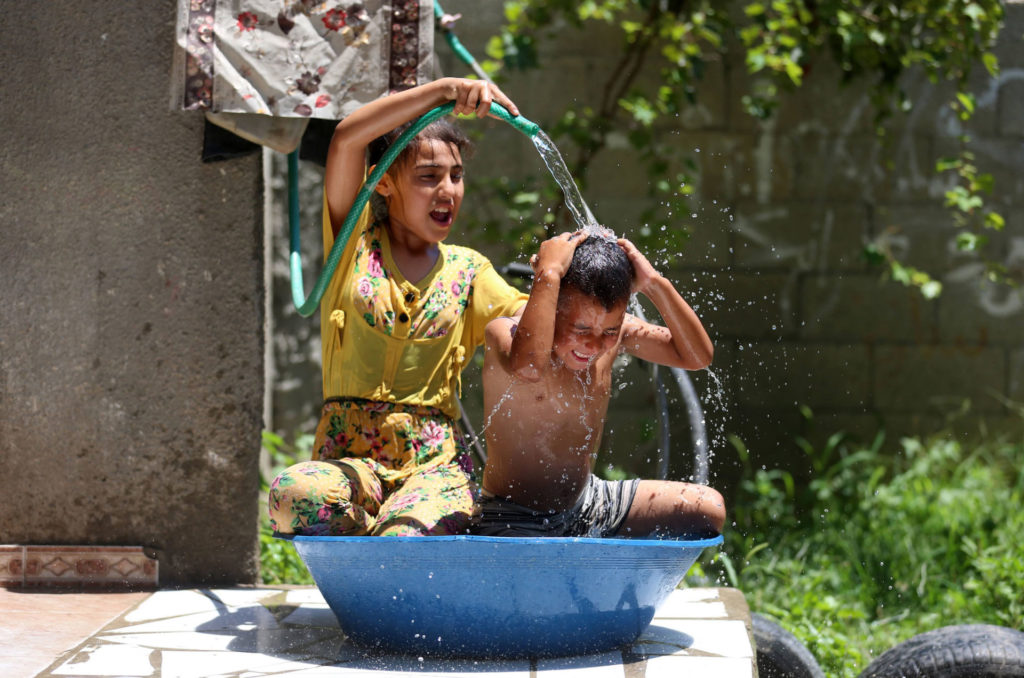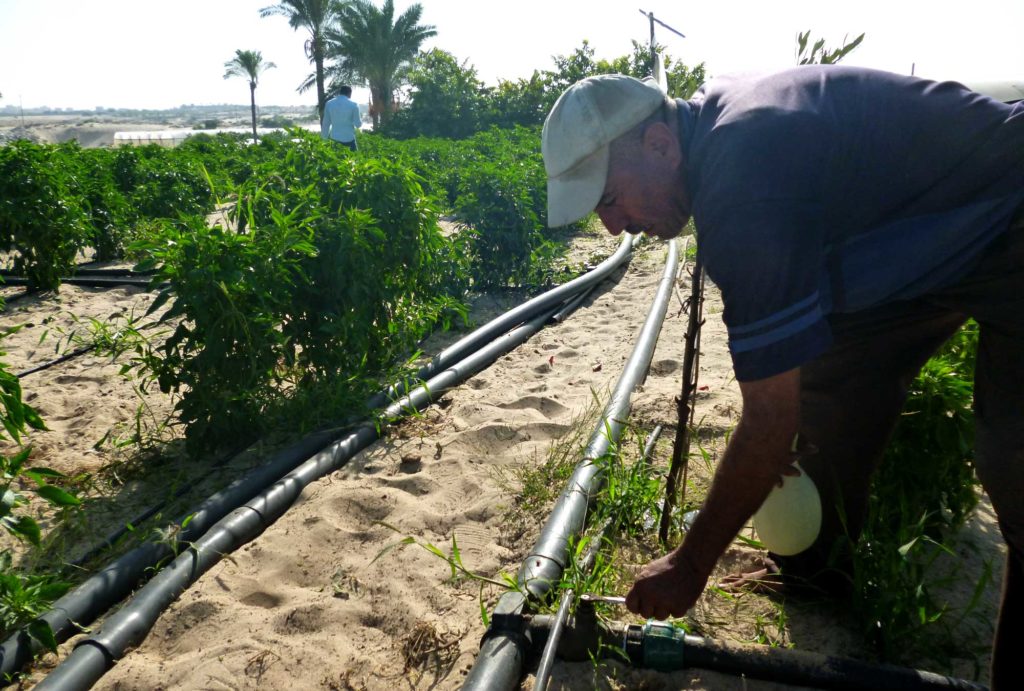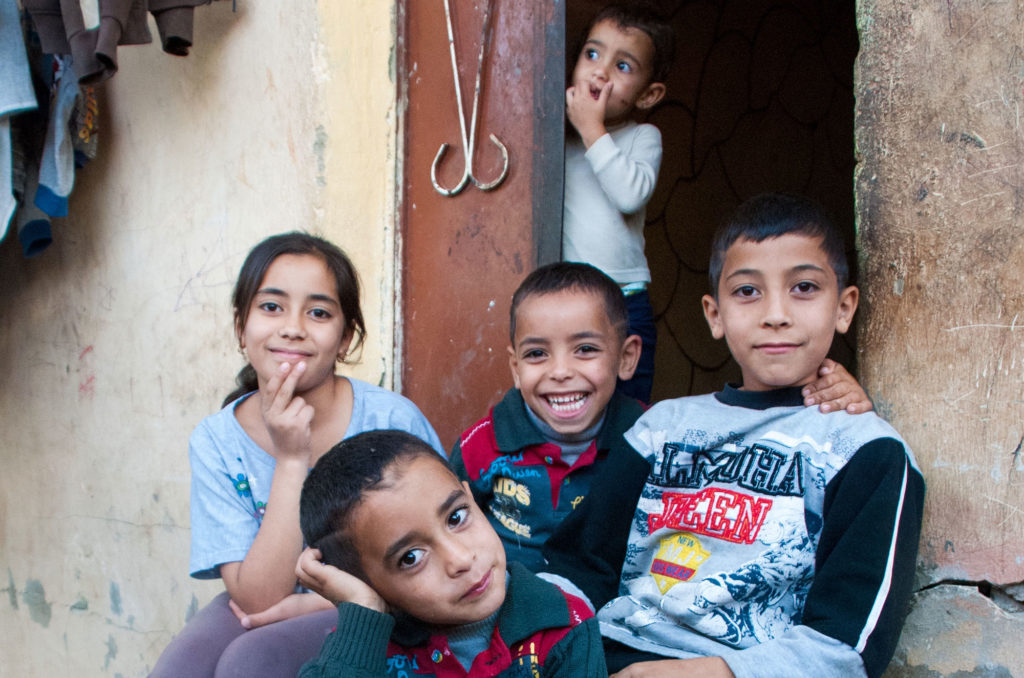Pollution, Climate Change and Limited Resources
In the dry climate of Palestine, Jordan, and parts of Lebanon, water is a scarce resource. The health of both humans and the environment suffer from water shortages, climate change and pollution. Farm fields lay fallow. Trees are few. And families have to save up the little water they can access to survive.
Urban areas, like those in Gaza and Lebanon’s refugee camps, grow more polluted as their populations increase. Trash is a big problem in Lebanon, especially in the restricted spaces of refugee camps. Cramped conditions and a dearth of waste disposal services push residents to dispose of their garbage on streets and beaches, putting people and the environment at risk.
Innovation in Environmental Protection
Anera incorporates green practices into a variety of projects, from building with recycled materials to irrigating with treated water.
Solid Waste Management
The Lebanon trash crisis is instigating a youth-led response in several communities where Anera works, from the Palestinian refugee camp of Nahr El Bared in the north, to the Bekaa Valley in the southwest, where Syrian refugees live in tents. Anera volunteers are promoting a culture of recycling and proper waste collection through environmental awareness sessions, distributing waste and recycling bins, planting trees and cleaning up littered beaches and roadways. Anera's sorting facilities prepare the waste for recycling.
Solar Panel Installation
In resource-strapped Gaza and the West Bank, sunlight is one thing in ample supply. Anera is harnessing the sun's rays to power buildings across Palestine. We have installed solar panels on dozens of schools and community centers. In Gaza, the availability of electricity is hard to predict. This can have life or death implications in hospitals and clinics, which is why Anera is prioritizing solar panel installations at these locations. And in Lebanon, Anera has expanded its vocational education program to respond to a growing energy crisis, including courses on installing solar panels. Graduates from the program have helped Anera install solar panels on 20 healthcare facilities in Lebanon.
Wastewater Reuse
Water is precious and scarce in the arid West Bank, but Palestinian municipalities discard wastewater every day, often paying a fee to Israel to do so. Anera has found a way to save and reuse wastewater. In Jenin, Anera helped farmers and the Palestine environment by building a wastewater irrigation system that nourishes fodder crops and fruit trees with treated wastewater. And, in Ramallah, we built a wastewater reuse system for the city for use in fire-fighting and irrigating city parks. This wastewater consumption replaces the use of freshwater, which is now conserved in aquifers or saved for household use.
Water Conservation
By building hydroponic gardens on rooftops in densely-packed refugee camps in the West Bank, in water-starved Gaza and Jordan, and in Lebanon, we're helping family farmers and home gardeners grow crops with far less water than is required in conventional agriculture. In a region like Gaza where clean water is very scarce, conserving water is all-important. Hydroponic systems require only 10-20 percent of the water needed in traditional systems.
Lebanon has had a trash crisis for years. Sustainable solutions to environmental challenges may be the key to building a self-sustaining Lebanese economy. Initiatives like the one detailed in this video create jobs and income while preserving the environment.

